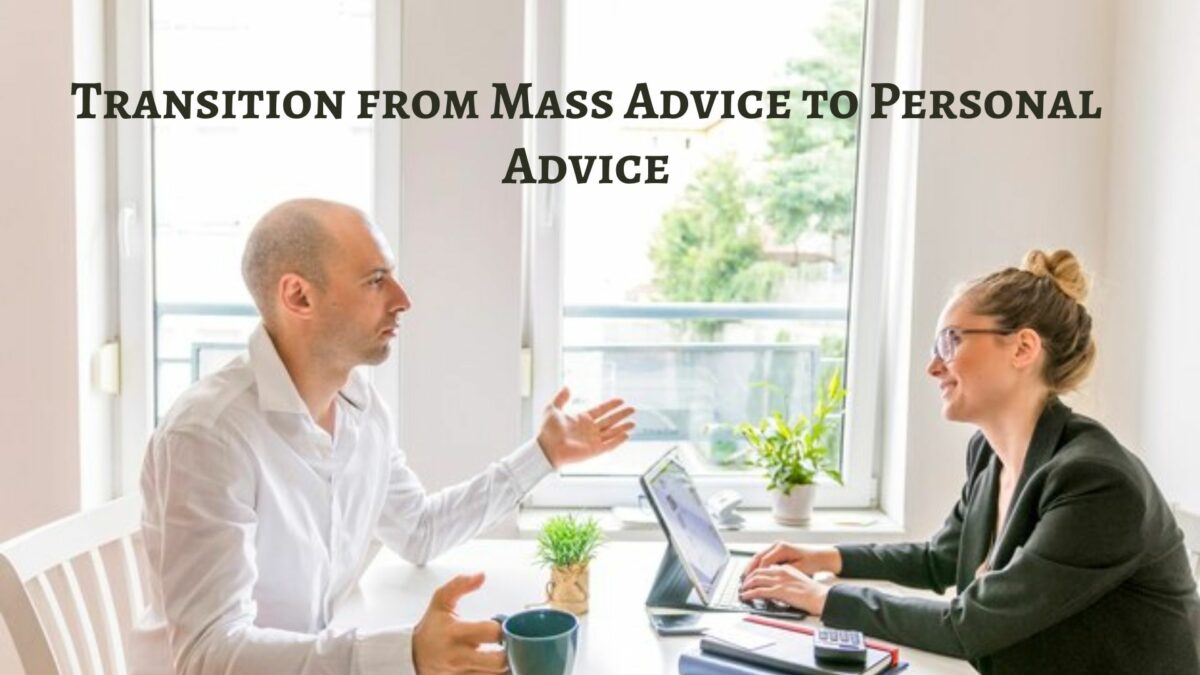“It is proof of a base and low mind for one to wish to think with the masses or majority, merely because the majority is the majority.”
– Giordano Bruno

“If you will live like no one else, later you can live like no one else.”
–Dave Ramsey
When I was in business school, I read personal finance books like a little kid reads comic books. Come to think of it, do kids read comic books anymore? Even though the statistics and career counselors from my business school pointed me in the direction of future financial success due to the likelihood of a high-paying job, a rewarding career, stock options, and the like, the reality was that I was in student loan debt up to my eyeballs and my past performance in dealing with money wasn’t exactly rosy.
In an effort to right the ship, I turned to the book section of Barnes and Noble. Fortunately, there was a Barnes and Noble within walking distance, so my wife and I spent many a weekend reading books and drinking coffee there. Romantic, I know. But, it was a cheap date, and when you’re in school, cheap dates are bested only by free dates.
I read all of the “gurus:” Dave Ramsey, Clark Howard, Suze Orman, Ric Edelman, David Bach, and the like. Since I was basically bankrolling my life via Sallie Mae – my wife’s job paid the bills but didn’t leave much for anything else – I had a pretty good handle on being cheap. I was girding myself for the days when I’d actually have an income again, and by goodness, I wasn’t going to make the same mistakes twice!
Yet, it didn’t seem that all of the financial advice I’d shoveled down my throat managed to stick when the time came (click here to learn more on how to make personal finance stick). A few years later, I found out that Dave Ramsey was offering a month free on his Total Money Makeover website for veterans as a tribute to Veterans Day. I signed up, and over the next month, my wife and I listened to every lesson in Financial Peace.
It stuck. We figured out our priorities in life and really started focusing on most of what he talked about – joint accounts, budgeting every month, and being intentional with money. I even subscribed to get a podcast of an hour of his radio show to listen to on the dog walk. Yup, I’m that nerdy. Listening to him helped me to be “gazelle intense” when it came down to paying off the mortgage.
Why is it that these “gurus” are so popular? I propose two main reasons:
- The advice that they give is generic. It is impossible to learn all of the salient pieces of information about a person’s life and financial circumstances in a thirty-second introductory snippet. To me, it is like a trauma surgeon giving triage in a mass casualty exercise – they take the most visible piece of information available and make heuristics about who gets treated and the treatment they provide. That assessment is based on years of experience but also on making assumptions about everything else behind what is presented. The gurus do the same thing.
- We overvalue free things. M.I.T.’s Kristina Shampanier and others conducted a series of experiments to determine how people valued free items compared to higher quality items or similar items with an extremely low cost. It turns out that free is to humans what fire is to moths. It draws them irresistibly, even when we don’t particularly value the free item. When I was with my software development company, we occasionally exhibited at conventions. Invariably, people would come looking for free things – free anything. It didn’t matter what was being offered, as long as it was free. Oftentimes, we will take something because it’s free and discount the other costs that are associated with the free item, sometimes to our detriment.
Yet, even after finishing all of the lessons of Financial Peace University, I didn’t do things necessarily in the order he suggested. For personal reasons, I wanted the mortgage paid off. Yes, people can argue that on a risk-adjusted basis, the alpha on that particular “investment decision” wasn’t the best one we could have made, but we chose to do so.
We personalized.
I did notice that after we’d paid off our mortgage and were truly debt-free, the podcasts and the message started to lose resonance with me. I tried to call into the show several Fridays in a row to do the “debt-free” scream, but never got through or never got called back. My graduation ceremony from Financial Peace University went with a whimper, not a bang.
Most of what Dave’s callers deal with are debt-related problems. He’s GREAT for getting people out of debt (on a related note, if you want to read about my “Dave Ramsey test,” check out my interview with Olympic gold medalist Wendy Boglioli). I wasn’t in that category. I was in the middle of the sale of my company. My present and my future were certainly different than my past.
Don’t get me wrong and suddenly think that I’m slagging Dave Ramsey or the rest of the “gurus.” Far from it. Because I had read so many of their books and listened to so many podcasts and radio shows, I could have passed the first financial planning course at NYU, Foundations in Financial Planning, in preparation for the CFP® exam without reading the textbook. He and their ilk are great at what they do. In particular, they’re wonderful for providing the ladder for people to climb out of the holes they’ve dug themselves into financially.
At some point, though, if you pay attention, are intentional, live within your means, and don’t repeat your mistakes, you get out of the hole.
Then what?
Should you immediately go plonk down a not-insignificant amount of cash to get some advice from a financial planner? Maybe not (though, most certainly, don’t pay unnecessary commissions if you do).
Here’s when I think it makes sense to get personalized financial advice

- It’s not worth your time to get fully educated. There are two branches of this.
- First, many times, there are easy answers. How do I get out of debt? How do I make a budget? Those questions are answered fairly easily and the effort required to find the information is minimal. It’s not as if someone out there is going to come up with a great financial secret and determine an even better way of paying down debt than is already out there.
- The second branch is that once you get past the easy questions, it takes a lot of time and education to get the harder answers. Do you want to learn how to build Monte Carlo simulations to tell you whether or not SAFEMAX is appropriate for you? Can you incorporate actuarial probabilities of death to determine if you need life insurance? That’s when you might want to consider personalized advice. My approach, for example, IS to teach, but it’s to teach you what you need to do to improve the chances of being successful in your specific financial goals as they apply to your specific situation. For example, if an ILIT is appropriate for you, then I’ll teach you about it, but, as is true in most instances, it won’t apply, so I won’t waste your time (and money).
- You have the excess capital to where the investment in yourself doesn’t mean you go without the necessities. If you’re barely making ends meet as it is, have carved expenses to the bone, and, for some reason, can’t go earn extra income, then you pretty much know what you have to do. Furthermore, you’re really in a situation where the time-for-money tradeoff isn’t there.
- Your situation is unique. Win the lottery? Not many people do, so you’re in a very select few. First pick of the MLS draft? There are a handful of those people. Inherit a yacht from rich Uncle Larry? You get the point. It doesn’t have to be that extreme, mind you, but you can probably determine from a quick perusal of websites and books whether or not you’re in a fairly specific situation that will require specialized knowledge and abilities to point you in the right direction.
- The time and money you invest will move the needle in your family’s financial situation. This is the reverse of the case where you value something because you pay for it. It’s more akin to buying a gym membership and never going. If you’re only going to pay for a financial planner to solve some other issue (such as a nagging spouse who tells you that the family should enlist a financial planner) and you’re never going to actually change any behaviors which need changing, then you may as well not waste your money and instead work around the other issues. However, if you approach the situation with an open mind and, where needed, a willingness to change, then investing in the personalized financial advice will likely be worth the expenditure.
- You will take the time to evaluate the value of what you’re spending money on. In the previously cited M.I.T. study, when test subjects were asked to make snap decisions about the value of low quality, but free Hershey’s Kisses as compared to more expensive, but higher value Lindt chocolates, they disproportionately attributed higher quality to the Hershey’s chocolate. However, when asked to think about the value of each chocolate and contemplate its quality, assigned values went back into line with the actual quality of each chocolate. Contemplation affects how you value a free item and how you value an item that you pay for.
What should you look for in a financial planner?

- Credentials. No doubt about it, passing the CFP® exam is the gold standard in determining whether a financial planner has the requisite knowledge to give you competent advice. Don’t think that just because someone has a high-ranking blog telling you about their journey from twenty-five thousand dollars in debt to ten thousand dollars in debt that you should be spending a couple of grand getting advice from them.
- Life experience. This isn’t the same as someone who’s spent years behind a phone smiling and dialing for dollars. I, admittedly, was stumped at my CFP® exam when I talked to several young people who were, for all intents and purposes, telesales reps. They must have had the most golden tongues in the history of mankind to get people to invest money with them. I didn’t get it, and I still don’t. What can a 22 year old fresh out of college tell a fortysomething small business owner about succession planning, what to look for in sell side advisors, and the like? Not much. Look for someone who has had a similar path as you in life, and was also successful. Don’t be afraid to ask the planner what he/she invests in and how much debt is on the balance sheet. You want someone who’s in the same ballpark of practicing what they preach to you; it’d be hard, in my mind, to be a credible financial planner who was drowning in debt. Call me picky.
- Affinity. You’re going to have to reveal a lot of private, personal information to your financial planner. If you don’t think that you have an affinity with your planner and can freely share all of that information, then keep looking, because you won’t have a successful relationship.
- Someone who’s not going to view you as a money cow. There are financial planners out there who will milk a client for all they’re worth to get commissions and fees out of them. I’ve had clients who have had their portfolios riddled with front-loaded mutual funds AND were paying hefty annual assets under management (AUM) fees. These planners scumbags did not have their clients’ best interests at heart, obviously. Find a planner who has your best interests foremost.
There is great value in the services that many of the “personal finance gurus” out there provide. I have nothing but the highest regard for Dave Ramsey and Clark Howard. I even own a Clark Howard bobblehead doll!
I also will not say that everyone needs financial planning services. Tons of people get by just fine without financial planning services, live below their means, and do fairly well.
However, there is a specific set of people for whom a) the “guru” financial advice doesn’t apply, and b) are willing to invest in themselves enough to justify that return on investment where getting personalized financial advice is worth that investment.
What would encourage you to actually invest in personalized financial planning? Tell us about it in the comments below!
Author Profile
- John Davis is a nationally recognized expert on credit reporting, credit scoring, and identity theft. He has written four books about his expertise in the field and has been featured extensively in numerous media outlets such as The Wall Street Journal, The Washington Post, CNN, CBS News, CNBC, Fox Business, and many more. With over 20 years of experience helping consumers understand their credit and identity protection rights, John is passionate about empowering people to take control of their finances. He works with financial institutions to develop consumer-friendly policies that promote financial literacy and responsible borrowing habits.
Latest entries
 Low Income GrantsSeptember 25, 2023How to Get a Free Government Phone: A Step-by-Step Guide
Low Income GrantsSeptember 25, 2023How to Get a Free Government Phone: A Step-by-Step Guide Low Income GrantsSeptember 25, 2023Dental Charities That Help With Dental Costs
Low Income GrantsSeptember 25, 2023Dental Charities That Help With Dental Costs Low Income GrantsSeptember 25, 2023Low-Cost Hearing Aids for Seniors: A Comprehensive Guide
Low Income GrantsSeptember 25, 2023Low-Cost Hearing Aids for Seniors: A Comprehensive Guide Low Income GrantsSeptember 25, 2023Second Chance Apartments that Accept Evictions: A Comprehensive Guide
Low Income GrantsSeptember 25, 2023Second Chance Apartments that Accept Evictions: A Comprehensive Guide

